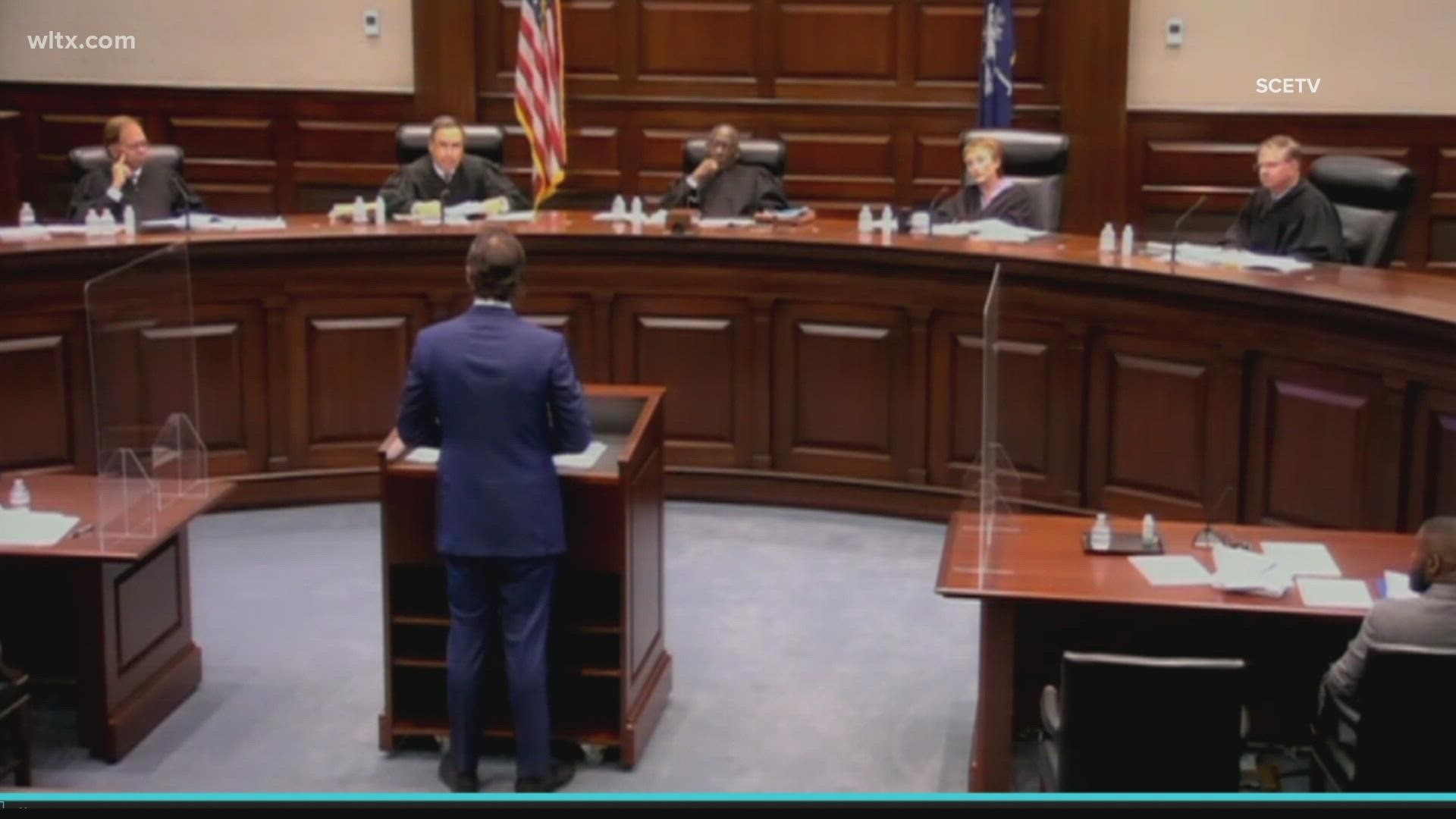COLUMBIA, S.C. — The South Carolina Supreme Court heard two cases Tuesday involving mask mandates in schools.
The first hearing was the State Attorney General’s lawsuit against the City of Columbia. The second took up Richland Two’s case against the General Assembly.
Both hearings were centered around the proviso passed by the General Assembly that bans mask mandates in schools.
Due to the wording of the proviso, the Supreme Court is looking into not only if schools can mandate masks, but how they use funding to do so.
Chris Kenney, an attorney representing Columbia told News19, "the question in this case for the court is whether a one-time budget instruction that prohibits the use of state money, also prohibits the City of Columbia from taking action to protect young people.”
Proviso 1.108 says schools cannot use funding from this year’s state budget to mandate masks.
Columbia enacted a mask ordinance for elementary and middle schools. Kenney argued it doesn’t violate the proviso because they’re not using state funds to enforce it.
"Two-thirds of the Richland One revenue was local money," Kenney told judges during his argument. "So, with respect to what the General Assembly has done in Proviso 1.108, all they said is 'do not spend our money on a mask mandate' and the city’s ordinance complies with that entirely.”
However, an attorney with the Attorney General’s office argued that teachers and staff are the ones enforcing masks day to day, and their salaries are paid for by the state, which means state funds are being used to enforce masks, going against the proviso.
RELATED: SC ban on school mask mandates has no clear penalty or way of enforcement, state leaders say
"It doesn’t take too much of a reach to say teachers will be on the front lines of this. In their classrooms, it’ll be up to the teacher to say put your mask back on,” argued Emory Smith.
In the second hearing, Richland Two’s attorney Carl Solomon argued they can also enforce masks without state funding.
"Richland Two has $80 million sitting in a bank account from funds appropriated prior to this year or local funds. Those cannot be reached by this proviso,” said Solomon.
But those defending the proviso, like Smith, argued all funds are intertwined, and eventually state funding from this year would be used to enforce masks.
“It would be different if this proviso said ‘can’t use money to buy masks.’ It doesn’t say that. It says ‘can’t use money to require that students or employees wear a face mask.’ So, that goes directly to enforcement, so does the ordinance, and they can’t both be right,” Smith told the panel of judges.
When a city ordinance conflicts with a proviso, Smith argued state law takes precedent. However, Solomon argued the law is unconstitutional because it actively prevents safety in schools.
The court heard both sides in both hearings but it's unclear when a decision will be made.

